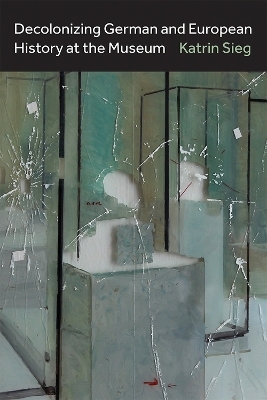
Decolonizing German and European History at the Museum
Seiten
2021
The University of Michigan Press (Verlag)
978-0-472-07510-2 (ISBN)
The University of Michigan Press (Verlag)
978-0-472-07510-2 (ISBN)
How do museums confront the violence of European colonialism, conquest, dispossession, enslavement, and genocide?
Decolonizing German and European History at the Museum examines European museums’ efforts to investigate colonialism as part of an unprocessed past, confront its presence, and urge repair. A flurry of exhibitions and the overhaul of numerous large museums in the last decade signal that an emergent colonial memory culture is now reaching broader publics. Exhibitions pose the question of what Europeans owe to those they colonized.
Decolonizing German and European History at the Museum shows how museums can help visitors mourn historic violence and identify the contemporary agents, beneficiaries, victims, survivors, and resisters of colonial presence. At the same time, the book treats the museum as part of the racialized power relations that have long been protested by activists, academics and artists. This book asks whether museums have made the dream of activists, academics, and artists to build equitable futures more acceptable and more durable--or whether in packaging that dream for general audiences they curtail it. Confronting colonial violence, this book argues, pushes Europeans to face the histories of racism and urges them to envision antiracism at the global scale.
Decolonizing German and European History at the Museum examines European museums’ efforts to investigate colonialism as part of an unprocessed past, confront its presence, and urge repair. A flurry of exhibitions and the overhaul of numerous large museums in the last decade signal that an emergent colonial memory culture is now reaching broader publics. Exhibitions pose the question of what Europeans owe to those they colonized.
Decolonizing German and European History at the Museum shows how museums can help visitors mourn historic violence and identify the contemporary agents, beneficiaries, victims, survivors, and resisters of colonial presence. At the same time, the book treats the museum as part of the racialized power relations that have long been protested by activists, academics and artists. This book asks whether museums have made the dream of activists, academics, and artists to build equitable futures more acceptable and more durable--or whether in packaging that dream for general audiences they curtail it. Confronting colonial violence, this book argues, pushes Europeans to face the histories of racism and urges them to envision antiracism at the global scale.
Katrin Sieg is Graf Goltz Professor and Director of the BMW Center for German and European Studies at Georgetown University.
| Erscheinungsdatum | 18.10.2021 |
|---|---|
| Reihe/Serie | Social History, Popular Culture, And Politics In Germany |
| Zusatzinfo | 18 illustrations |
| Verlagsort | Ann Arbor |
| Sprache | englisch |
| Maße | 157 x 231 mm |
| Gewicht | 333 g |
| Themenwelt | Kunst / Musik / Theater |
| Geisteswissenschaften ► Geschichte ► Hilfswissenschaften | |
| Geisteswissenschaften ► Geschichte ► Regional- / Ländergeschichte | |
| ISBN-10 | 0-472-07510-1 / 0472075101 |
| ISBN-13 | 978-0-472-07510-2 / 9780472075102 |
| Zustand | Neuware |
| Haben Sie eine Frage zum Produkt? |
Mehr entdecken
aus dem Bereich
aus dem Bereich


